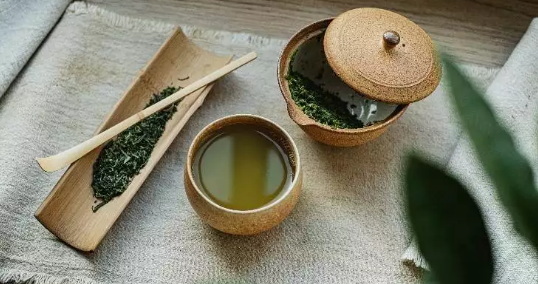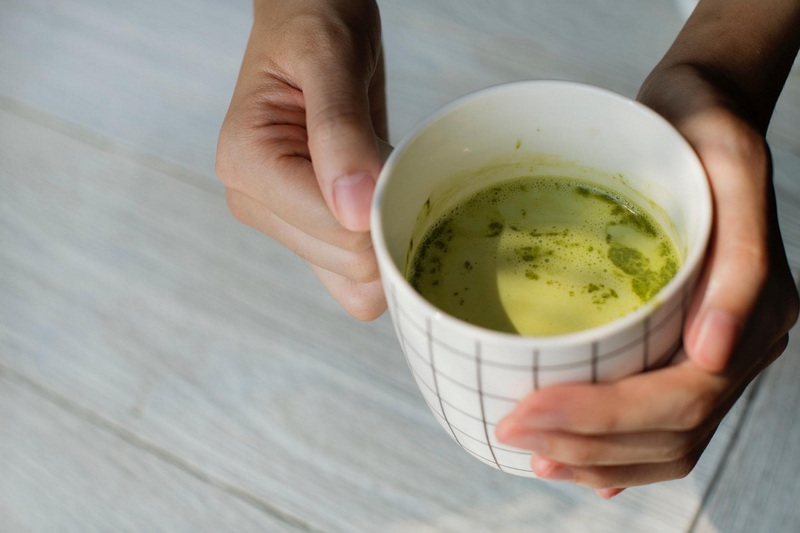Content Menu
● Introduction to L-Theanine
>> L-Theanine's Anti-Inflammatory Effects
● Green Tea and Inflammation
>> Green Tea vs. Black Tea
● L-Theanine Concentration and Anti-Inflammatory Effects
>> Potential Benefits of High-Concentration L-Theanine
● Mechanisms of Action
>> Role in Neuroinflammation
● Clinical Evidence and Future Directions
>> Potential Synergistic Effects
● Dietary Considerations
>> Lifestyle Modifications
● Additional Considerations
>> Safety and Side Effects
>> Interaction with Medications
● Future Research Directions
>> Potential Applications in Chronic Diseases
● Conclusion
● FAQs
>> 1. What is L-theanine?
>> 2. How does L-theanine reduce inflammation?
>> 3. Is green tea more effective than black tea in reducing inflammation?
>> 4. What is the typical concentration of L-theanine in green tea?
>> 5. Can L-theanine supplements enhance anti-inflammatory effects?
● Citations:
In recent years, the health benefits of green tea have been extensively studied, with L-theanine emerging as a key component with potential anti-inflammatory properties. This article explores whether green tea L-theanine, particularly at a concentration of 60%, can help reduce inflammation.

Introduction to L-Theanine
L-theanine is an amino acid found predominantly in green tea, known for its calming effects and potential health benefits. It is recognized for its ability to promote relaxation, reduce stress and anxiety, and improve cognitive function. Beyond these benefits, L-theanine has been studied for its anti-inflammatory properties, which could play a significant role in reducing inflammation in the body.
L-Theanine's Anti-Inflammatory Effects
Research has shown that L-theanine can inhibit the nuclear factor kappa B (NF-κB) pathway, which is crucial in the regulation of inflammation. By inhibiting this pathway, L-theanine reduces the expression of pro-inflammatory factors such as cyclooxygenase-2 (COX-2), prostaglandin E2, and inducible nitric oxide synthase. This suggests that L-theanine could be beneficial in reducing inflammation.
Green Tea and Inflammation
Green tea, rich in L-theanine and other polyphenols like catechins, has been shown to possess anti-inflammatory properties. Studies have demonstrated that green tea can decrease levels of tumor necrosis factor-alpha (TNF-α), a key inflammatory marker. However, the effects of green tea on other inflammatory markers like C-reactive protein (CRP) and interleukin-6 (IL-6) are less consistent across different studies.
Green Tea vs. Black Tea
Both green and black tea have anti-inflammatory effects, but green tea is generally more potent due to its higher flavonoid content. The processing of black tea involves fermentation, which reduces the flavonoid levels compared to green tea.
L-Theanine Concentration and Anti-Inflammatory Effects
While the typical concentration of L-theanine in green tea is about 1-2% of the dry weight, a 60% concentration is significantly higher and typically found in supplements. This higher concentration could potentially enhance the anti-inflammatory effects of L-theanine.
Potential Benefits of High-Concentration L-Theanine
- Enhanced Anti-Inflammatory Effects: A higher concentration of L-theanine may lead to more pronounced inhibition of inflammatory pathways.
- Improved Bioavailability: Supplements often ensure better bioavailability compared to dietary sources.
Mechanisms of Action
L-theanine's anti-inflammatory effects are also attributed to its ability to modulate the immune system. It can influence cytokine production, which plays a crucial role in inflammation. Additionally, L-theanine may enhance the activity of certain enzymes involved in the detoxification process, further contributing to its anti-inflammatory properties.
Role in Neuroinflammation
In the context of neuroinflammation, L-theanine has been shown to protect against neurodegenerative diseases by reducing oxidative stress and inflammation in the brain. This protective effect is particularly relevant for conditions like Alzheimer's disease and Parkinson's disease.

Clinical Evidence and Future Directions
While there is promising evidence from in vitro and animal studies, more clinical trials are needed to confirm the anti-inflammatory effects of L-theanine in humans. Future research should focus on the optimal dosage and duration of L-theanine supplementation for achieving significant anti-inflammatory benefits.
Potential Synergistic Effects
Combining L-theanine with other anti-inflammatory compounds, such as omega-3 fatty acids or curcumin, may enhance its effects. This synergistic approach could lead to more effective inflammation management strategies.
Dietary Considerations
Incorporating green tea into one's diet can be a simple way to increase L-theanine intake. However, for those seeking a higher concentration, supplements are available. It is essential to consult with a healthcare provider before starting any new supplement regimen.
Lifestyle Modifications
In addition to dietary changes, lifestyle modifications such as regular exercise, stress management, and adequate sleep can also help reduce inflammation. These holistic approaches can complement the anti-inflammatory effects of L-theanine.
Additional Considerations
Safety and Side Effects
L-theanine is generally considered safe with minimal side effects. However, high doses may cause drowsiness or interact with certain medications. It is crucial to monitor these effects when using L-theanine supplements.
Interaction with Medications
Individuals taking medications for blood pressure, diabetes, or other conditions should consult their healthcare provider before starting L-theanine supplements, as interactions may occur.
Future Research Directions
Future studies should explore the long-term effects of high-concentration L-theanine on inflammation and its potential applications in managing chronic inflammatory conditions. Additionally, investigating the optimal dosage and duration of supplementation will be crucial for maximizing its benefits.
Potential Applications in Chronic Diseases
L-theanine may have implications in managing chronic diseases characterized by inflammation, such as arthritis, cardiovascular disease, and certain types of cancer. Further research is needed to explore these potential applications.
Conclusion
While green tea L-theanine, particularly at a concentration of 60%, shows promise in reducing inflammation due to its anti-inflammatory properties, more research is needed to fully understand its effects. The combination of L-theanine with other components in green tea may enhance these benefits.

FAQs
1. What is L-theanine?
L-theanine is an amino acid found primarily in green tea, known for its calming effects and potential health benefits, including anti-inflammatory properties.
2. How does L-theanine reduce inflammation?
L-theanine reduces inflammation by inhibiting the NF-κB pathway, which decreases the expression of pro-inflammatory factors like COX-2 and TNF-α.
3. Is green tea more effective than black tea in reducing inflammation?
Yes, green tea is generally more effective than black tea due to its higher flavonoid content, which contributes to its anti-inflammatory effects.
4. What is the typical concentration of L-theanine in green tea?
The typical concentration of L-theanine in green tea is about 1-2% of the dry weight.
5. Can L-theanine supplements enhance anti-inflammatory effects?
Yes, supplements with a higher concentration of L-theanine (e.g., 60%) may enhance anti-inflammatory effects compared to dietary sources.
Citations:
[1] https://pmc.ncbi.nlm.nih.gov/articles/PMC9014247/
[2] https://pubmed.ncbi.nlm.nih.gov/31758301/
[3] https://pmc.ncbi.nlm.nih.gov/articles/PMC3401676/
[4] https://www.nature.com/articles/s41598-024-59383-y
[5] https://www.jstage.jst.go.jp/article/jnsv/68/6/68_540/_pdf/-char/en
[6] https://pmc.ncbi.nlm.nih.gov/articles/PMC10179891/
[7] https://pmc.ncbi.nlm.nih.gov/articles/PMC11223924/
[8] https://www.frontiersin.org/journals/nutrition/articles/10.3389/fnut.2022.853846/full






























